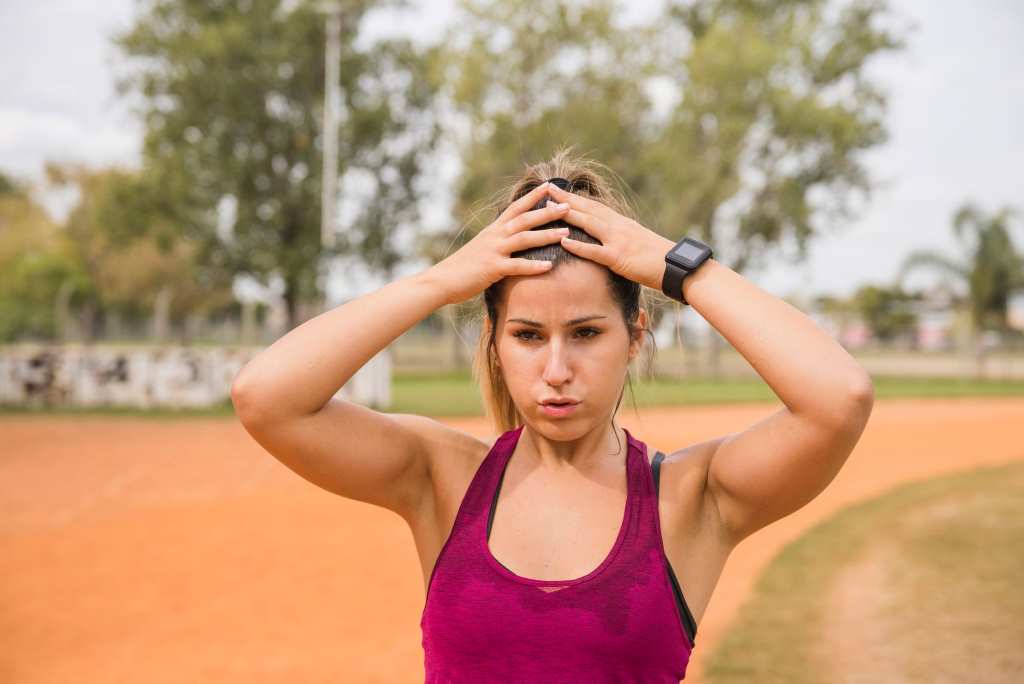Eating disorders among athletes present a unique challenge, as the intersection of rigorous training, performance pressures, and body image expectations can contribute to their development.
In this article, we will explore holistic strategies tailored specifically for sports enthusiasts on the path to recovery from eating disorders.
From fostering a supportive mindset to adopting balanced nutrition and seeking professional guidance, these holistic approaches aim to address the multifaceted nature of eating disorders in the context of athletic pursuits.
Understanding the Landscape
This involves recognizing the unique challenges and pressures faced by athletes in relation to their body image, performance expectations, and the culture surrounding sports.
By understanding the interplay between these factors, interventions can be tailored to address the specific needs of athletes, promoting a comprehensive and sustainable recovery process.
1. Hurdles Faced by Athletes
Athletes often encounter distinct challenges that may contribute to the development or exacerbation of eating disorders.
The emphasis on physique, weight, and performance can create an environment where disordered eating patterns may go unnoticed or be normalized.
It is crucial to recognize the signs and acknowledge the unique struggles faced by athletes in their journey to recovery.
2. Impact on Performance
Eating disorders can have a profound impact on an athlete’s physical and mental well-being, directly influencing their performance.
Malnutrition, dehydration, and compromised mental health can hinder training progress and impede the ability to reach peak performance levels.
It becomes imperative to address these issues holistically, considering both the mental and physical aspects of recovery.

Building a Supportive Mindset
Building a supportive mindset is crucial when it comes to holistic approaches to eating disorder recovery for athletes. It involves cultivating self-compassion, developing a positive body image, and surrounding oneself with a network of understanding and empathetic individuals.
This mindset encourages athletes to prioritize their mental and physical well-being, fostering a healthy relationship with food and exercise, and ultimately enabling them to regain control and thrive in their recovery journey.
1. Embracing Mental Resilience
Recovery from an eating disorder involves not only physical healing but also a fundamental shift in mindset. Athletes must cultivate mental resilience to overcome the psychological challenges associated with body image, self-worth, and societal expectations.
Establishing a positive self-image and redefining success beyond appearance are essential components of this transformative process.
2. Role of Support Systems
Athletes benefit greatly from a robust support system that includes coaches, teammates, friends, and family. Open communication channels and a non-judgmental atmosphere foster an environment where athletes feel comfortable seeking help.
The collective effort of the support network plays a pivotal role in reinforcing positive habits and attitudes.

Nourishing the Body and Mind
It involves providing the body with the necessary nutrients and energy to support physical performance and overall health.
Additionally, it focuses on addressing the underlying psychological and emotional factors that contribute to disordered eating behaviors. By nurturing both the body and mind, athletes can achieve a balanced and sustainable recovery.
1. Tailoring Nutrition for Recovery
A holistic approach to eating disorder recovery for athletes involves a nuanced understanding of nutritional needs. Collaborating with nutritionists and healthcare professionals ensures that athletes receive personalized dietary plans that support both recovery and optimal athletic performance.
Balancing macronutrients, vitamins, and minerals is key to fostering physical well-being.
2. Mindful Eating Practices
Incorporating mindfulness into eating habits can help athletes reconnect with their bodies and develop a healthier relationship with food.
Mindful eating encourages awareness of hunger and satiety cues, promoting a more intuitive approach to nourishment. This practice not only aids in recovery but also contributes to long-term well-being.

Seeking Professional Guidance
Professional guidance provides the necessary expertise and support to address the unique challenges athletes face in their recovery journey.
By working with experienced therapists, nutritionists, and coaches, athletes can receive tailored strategies, therapies, and guidance to restore their physical and mental well-being, ultimately promoting a balanced and sustainable approach to recovery.
1. Consult with Nutritionist for Eating Disorders
Consulting with a nutritionist is crucial for athletes seeking recovery from eating disorders in a holistic manner.
By working closely with a Nutritionist for Eating Disorders, athletes can receive personalized guidance on creating a balanced meal plan that supports their physical and psychological health, while also addressing any unique nutritional needs specific to their sport.
This collaborative approach helps athletes develop a healthy relationship with food, ultimately aiding in their recovery journey.
2. Collaboration with Coaches
Coaches play a pivotal role in an athlete’s journey to recovery. Collaborative efforts between athletes, coaches, and healthcare professionals help create an integrated approach that considers training intensity, competition schedules, and overall well-being.
Coaches can contribute significantly to fostering a positive training environment that prioritizes health over unrealistic body standards.
Holistic Wellness Beyond Recovery
By focusing on the athlete as a whole person, this approach aims to promote long-term wellness and support sustainable changes in lifestyle and mindset.
It emphasizes the integration of self-care practices, such as mindfulness, yoga, and meditation, to cultivate a balanced and nourishing life beyond recovery.
1. Integrating Holistic Practices
Beyond the targeted strategies for recovery, athletes can benefit from incorporating holistic wellness practices into their daily routines.
This may include activities such as yoga, meditation, and mindfulness exercises that contribute to overall well-being. These practices not only aid in recovery but also serve as preventive measures against relapse.
2. Emphasizing Self-Care
Self-care is integral to maintaining a healthy balance between athletic pursuits and personal well-being. Athletes should prioritize adequate rest, stress management, and recreational activities to foster a holistic approach to health.
Balancing the demands of training with sufficient downtime is essential for long-term resilience.
Conclusion
The journey to eating disorder recovery for athletes requires a holistic approach that addresses both the physical and mental aspects of well-being.
By fostering a supportive mindset, nourishing the body and mind, and seeking professional guidance, athletes can embark on a transformative path toward resilience.
It is crucial to recognize the unique challenges faced by athletes and implement strategies that promote a healthy relationship with food, body image, and performance.










